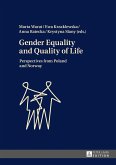This book tells the story of the German Democratic Republic from "the inside out," using the lens of generational change to deconstruct an intriguing array of social identities that had little to do with the "official GDR" version authoritarian rulers regularly sought to impose on their citizens. The author compares the "identities" of five societal subgroups (GDR writers and intellectuals; pastors and dissidents; women; youth; and working-class men), exploring the policies defining their lives and status before/during/after the 1989 Wende, as well as the diverging "exit, voice and loyalty" dilemmas encountered by each. The "dialectical" components treated in this work center on the extent to which eastern identities were lost, found and reconfigured across three generations, from 1949 to 1989, from 1990 to 2005, then up to 2020. It explores how the existence of a separate East German state and the socialization processes imposed on each subculture has not only complicated the search for national unity since 1990 but also -- perhaps more controversially-invoked new challenges directly related to ongoing East-West structural disparities since unification and the treatment of eastern Germans by often more privileged western Germans.
Bitte wählen Sie Ihr Anliegen aus.
Rechnungen
Retourenschein anfordern
Bestellstatus
Storno








